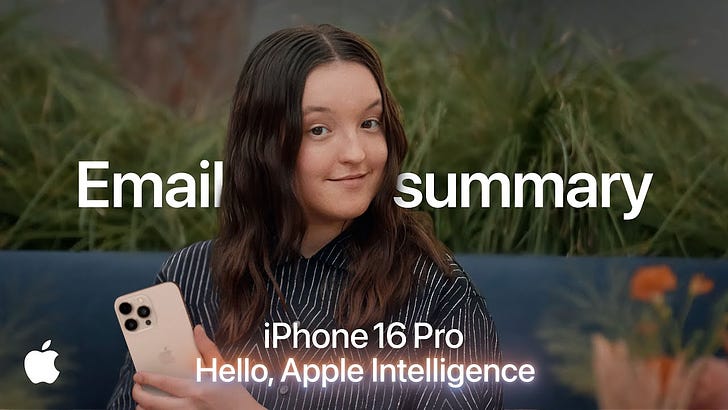1,000 days later
Welcome to a Monday edition of Unmade. Today: after 1,000 days of generative AI, how has our world changed? Plus, Enero’s slide on the Unmade Index gets worse.
It’s your last chance to sign up for a paid membership of Unmade and lock in all of the current benefits. Next month, we’re going to stop accepting new paying members of Unmade. Instead we’ll be offering membership of an expanded Mumbrella Pro as we bring the two brands closer together.
All Unmade membership perks will be carried across, including complimentary tickets to REmade, Unlock and Compass for our annual paying members. These won’t be available to anyone else as part of the new Mumbrella Pro membership.
Your paid membership also includes exclusive analysis and access to our content archive which goes behind the paywall six weeks after publication.
Upgrade now or miss out.
The AI adjustment
It’s now been 1,000 days since the world wobbled on its axis.
It went fast. It was in November 2022 that the world met ChatGPT, and the realisation quickly dawned that generative AI was now a present, not future, thing.
According to Perplexity and Claude, it’s been 1,019 days since November 30, 2022 when ChatGPT-3.5 was released. Bing, Gemini and ChatGPT said it’s 1,020. According to Meta AI, it’s been 1,021. Which helps sum up the state of AI. While being confident that it’s remaking the media and marketing world, it’s still impossible to assume that any given answer is accurate. Hallucinations are just one of the quirks.
So what has actually changed for the world of media and marketing?
The most noticeable single area is what could loosely be described as production. That’s where the efficiencies have already begun to arrive, or jobs have been lost depending on your perspective.
A key example came in June when Optus retained BRX as its production partner with an expanded remit. Much of what BRX does is using AI in the mass production of pieces of individual digital creative.
For every creative agency, that sort of process has either arrived, or they are in denial. Agencies aiming to retain a model of charging by head hours rather than outcomes face an increasingly difficult path.
Those in image or video production are similarly facing a revolution in what’s already possible.
Around the edges, AI voiceovers are getting better, and consumers are probably hearing more AI voices than they realise. After a decade of unfulfilled promise, chatbots are finally becoming marginally useful.
The rise of AI has also accelerated the trend of marketers (and agencies) outsourcing their thinking around media planning to the black boxes of the platforms. In June, Meta founder Mark Zuckerberg told an earnings call: ““Our goal is to make it so that any business can basically tell us what objective they’re trying to achieve, like selling something or getting a new customer, and how much they’re willing to pay for each result, and then we just do the rest.”
There’s no room for creative or media agencies within that vision
Alongside that comes AI slop. Increasingly, the feeds of Meta are full of crappy AI-generated content designed merely to add a few more seconds of engagement.
Offering more of a utility for users (and threat for publishers) was the move by Google to introduce AI Overviews. Google claims that the move to give the answer on the page rather than sending traffic to publishers has not damaged traffic. Every independent study has suggested the opposite.
The AI Overviews arrangement finally destroys what had always been an unlegislated value exchange: Google got to serve ads next to content pointing users in the right direction, and the publishers got the traffic. Now Google - and other AI services - crawl the publications, ingest the content, then serve it up directly to their users. Zero click is close.
The deadline on the Productivity Commission’s consultation on whether to loosen Australia’s copyright laws to make it even easier for AIs to do this legally, expired today, coincidentally.
The biggest problem with the proposal is that an efficient market needs to include incentives. For media companies to go on creating content, there needs to be the means for them to be paid for it, particularly by the AI companies training their large language models.
If the LLMs can get that content for free in the short term, they’ll gobble it up now, and worry later why publishers couldn’t afford to create more content.
While AI has been a gold rush for some, so far the net effect for media and marketing jobs has been negative. For every new agency chief AI officer, there are half a dozen disappeared roles.
There are fewer people working in senior marketing and media roles than there were two-and-a-half years ago. Entry level jobs look less viable when most of that work can soon be outsourced to AI. At which point, what is the plan for bringing in and training the next generation of talent?
How much of the job slowdown is directly down to AI, and how much wider economic pressures is impossible to say.
Nonetheless, although AI has so far been a net negative for the industry, the cataclysm is yet to arrive. Ironically the biggest impact yet may be when the AI investment bubble bursts, likely taking down the economy with it. The warnings around that are getting louder every week.
Just as the Global Financial Crisis had little to do with the marketing world, it nonetheless defined the health of the media for years. The same will likely happen this time round to. Chances are, that will happen in a lot fewer than 1,000 days.
Unmade’s evolving coverage of the rise of generative AI:
Enero tumbles on the Unmade Index
Enero Group’s ASX slide continued today, with the agency holding company losing another 8.6% to land on a market capitalisation of $67m. Enero - owner of agencies BMF, Hotwire and Orchard - has lost nearly 20% of its value over the last week.
The other stock on the Unmade Index to see a fall today was marketing and print house Ive Group, which lost 4.1%.
Nine had a second strong day in a row, after slumping 36% on Thursday when it went ex-dividend ahead of shareholders’ Domain payout. It improved by 2.7% today, after picking up 2.8% on Friday.
Fellow TV player Seven West Media grew by 3.6%.
In the audio sector, ARN Media gained 2.1% and Southern Cross Austereo picked up 2%.
Vinyl Group rose by 5% after losing 13% on Friday.
The Unmade Index closed on 476.1 points, up by 1.6% for the day.
More from Mumbrella…
Nine held secret investigation into Liz Hayes’ bullying claims
‘We knew we had to refresh it’: Dulux brings back nostalgic Jelly Bean campaign
‘You can’t taste the gin through Instagram’: How Weave developed Four Pillars’ new label
Time to leave you to your evening. We’ll be back with more tomorrow.
Have a great day
Toodlepip…
Tim Burrowes
Publisher - Unmade + Mumbrella
tim@unmade.media
























